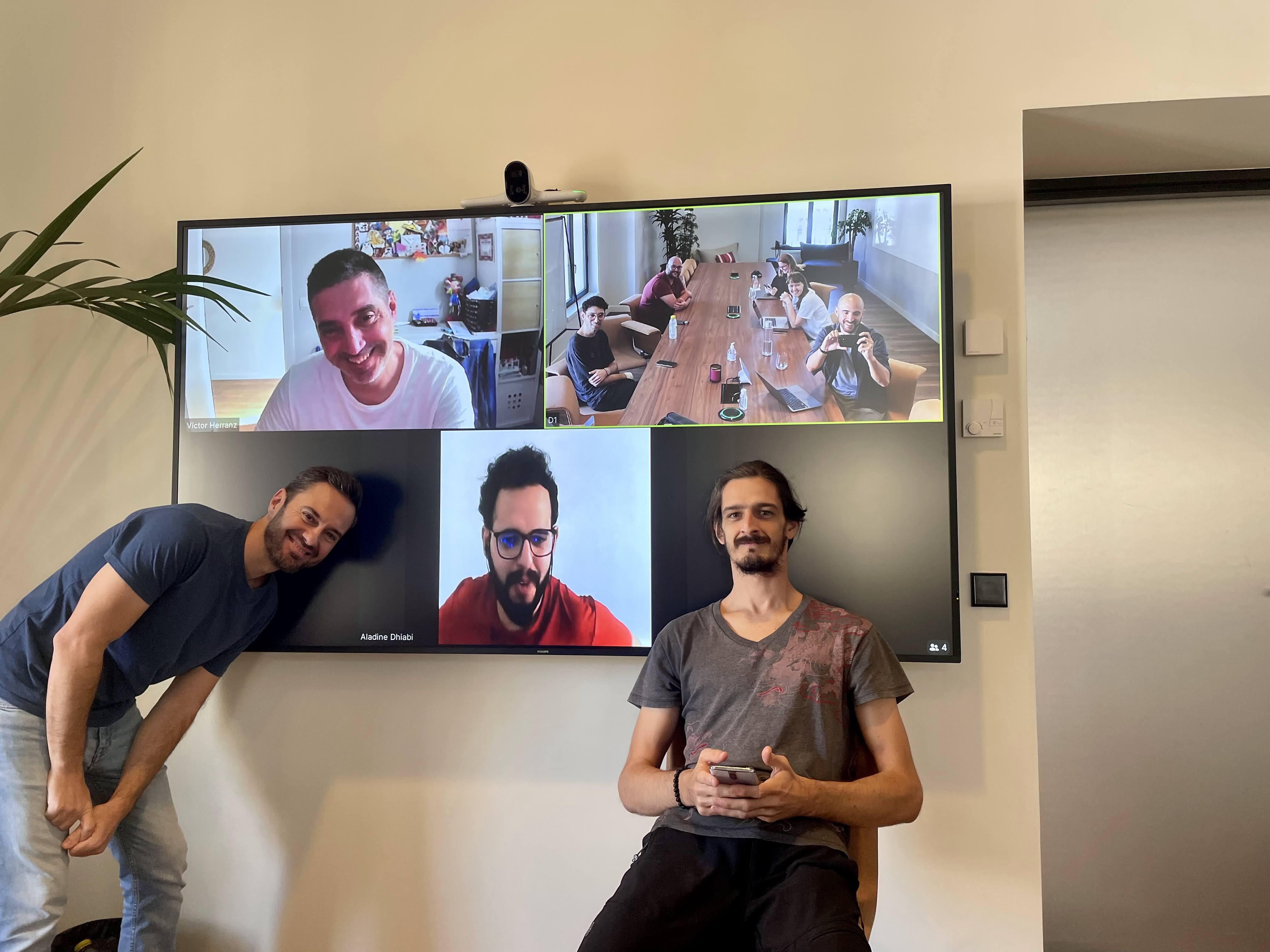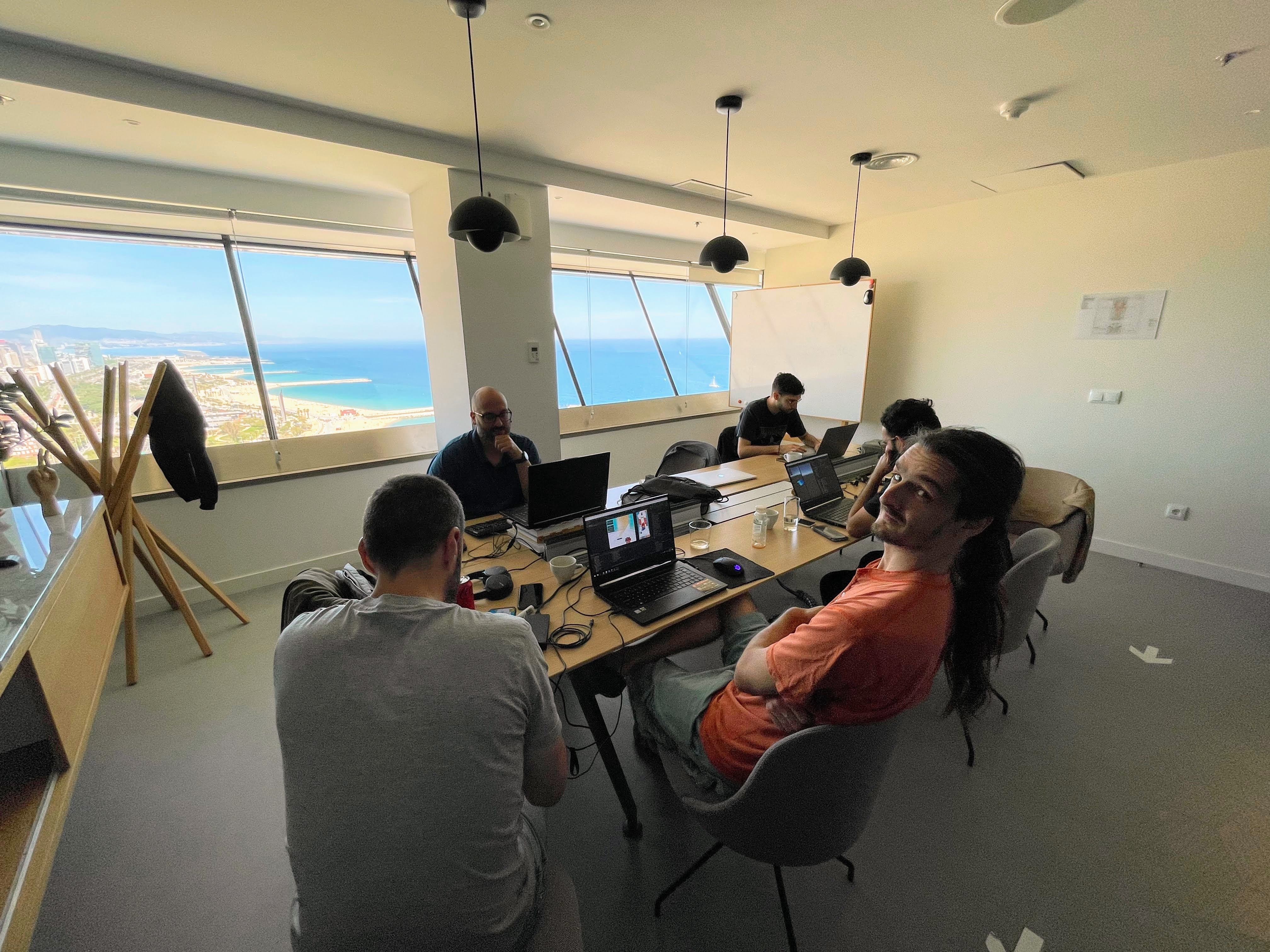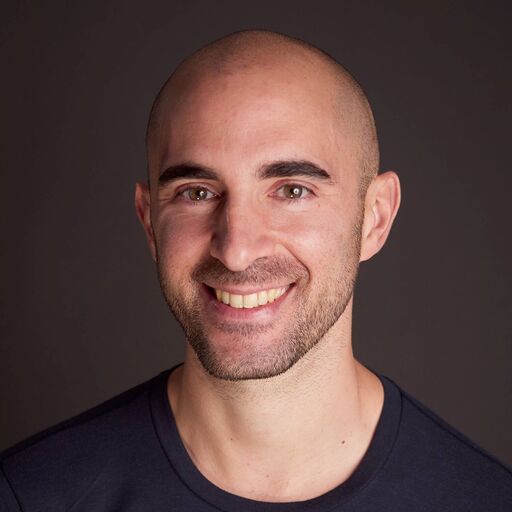What are you working on, and what are the ambitions of your studio?
Mambo is an internal studio at Voodoo, responsible for one of our biggest games: Mob Control. After its success as a hyper-casual title, our studio took on the game with the mission of evolving it into a deeper, more engaging game that offers enough content and mechanics to be entertaining for a very long period of time. Instead of leaving it in maintenance mode as Voodoo had done in the past, we decided to give the game the love it deserved.
Since then, we have worked to enhance the game by implementing a variety of progression systems, competitive events, and monetization mechanics. At the same time, we are revamping the game's visuals and improving its technical aspects, such as optimizations and quality.
Despite our small team (there are about a dozen of us now), we have big ambitions: When we started, we wanted to put this game in the Top 100 grossing list. Now that we are getting there, we are preparing to go further and compete with the big games in the genre. Our ultimate aim is to make Mob Control a household name!

Can you tell us about the culture you aim to promote within your studio?
Goal #1: Enjoy our job
We’re in this for the long haul. To remain resilient and productive for years to come, even during challenging times, it’s essential that we find joy in what we do.
Goal #2: Be 10 times better
We are a new and small studio in a hyper competitive industry. The only way to success is to be many times smarter and simply better than the competition.
Goal #3: Work as a team
We succeed and fail as a team. Inspired by sports teams, we put emphasis on our performance and behavior as a team, very rarely in that of one individual.
How do you ensure that each team member is aligned with the studio’s culture and values?
Leading by example
Starting with me as studio director, and following with the most senior team members, we show and demonstrate the desired behaviors and attitudes.
We always try to give context and explanations around important decisions, especially on new situations, so everyone can adopt them themselves in the future.
Timely feedback
Whenever someone misses the mark in terms of culture, I quickly set aside some time to discuss the matter and explain how things could have been done differently.
Monthly meetups and project retrospectives
We hold monthly meetups and project retrospectives to help align our culture and values. These meetings provide opportunities for team members to discuss their experiences, share ideas, and reflect on how they can better align with the studio’s culture and values.

How do you handle performance within the team, and what steps do you take to maintain a positive work environment?
Regular 1:1s
Having regular 1:1s with everyone allows me to monitor the performance of the team and individuals and to maintain a tight feedback loop. The goal is to ensure everyone understands how we are doing versus initial expectations and how we can keep improving.
These 1:1s are a two-way street: they are an opportunity for me to understand what things are making it more difficult for team members to give their best and enjoy what they are doing.
Team conversations
Team members are encouraged to constantly have conversations about how things are going. When conflicts arise, we have dedicated retrospectives to analyze their root causes and how they can be avoided in the future.
Performance as a team
We work under the assumption that everyone has the skills and motivation to add value within the team (they would not be with us otherwise!) Under that assumption, the focus is put on our performance as a team. Feedback and requests for improvement are usually given to teams of people and the expectation is that they are able to find ways to improve together.

How do you encourage collaboration within your team while you are all working remotely?
Working remotely is core to our team (and one of the most valued benefits!), but it makes it harder to build the level of trust that is fundamental to having productive conflicts. These are absolutely normal conflicts that arise when a group of experts collaborate to solve a difficult challenge. The problem is that, without trust, it is too easy for fears and insecurities to take over and make the collaboration stressful and ineffective.
To mitigate this challenge, our team takes several steps to build and maintain trust, such as holding monthly meetups, encouraging informal conversations, conducting retrospectives and "team therapy," and evaluating performance as a team.
The other big risk of working fully remotely is the lack of social connection and fun. Many of us have grown accustomed to getting our dose of social activities, such as coffee chats and after-work drinks, as well as exercise, like commuting and walking around the office, from work. When you work fully remotely, these opportunities disappear.
To mitigate this, we strongly encourage all team members to disconnect at a reasonable hour, take longer vacations (we have a flexible vacation policy), and join social and physical activities unrelated to work (we all have a monthly budget to spend on well-being).
How do you balance individual team member goals with the overall goals of the studio?
While it may be a bit controversial, we ask our team members to set aside their individual goals and aspirations.
Instead, we ask everyone to focus on one goal: making our game a hit in the market and an important, positive part of our players' lives.
I understand that this may not be for everyone, but we love it. It is refreshing to work in an environment where conversations and conflicts are always about how to better implement a new game mechanic or what the biggest priorities are for our players. Since our foundation 1.5 years ago, we have never had a conversation about performance reviews, promotions, or other topics that usually occur in more traditional studios.

What kind of talent are you searching for?
As we hire to meet the needs of our growing game, the main goal is to maintain the density of talent we have in the team. We started with a core of highly experienced and talented individuals, so we are setting the bar high for new hires.
These are the main characteristics we are seeking in our new hires:
Culture fit and willingness to work in a team like ours.
Demonstrated hard skills and relevant job experience.
Entrepreneurial attitude and ability to work autonomously without constant supervision.
Intelligence to know when to prioritize high quality versus pragmatism and compromise.
Ambition to succeed and take our game to the next level and make our game even bigger!
If you would like to join the Voodoo Gaming teams, you can apply directly here on our career site or reach me out on LinkedIn!





